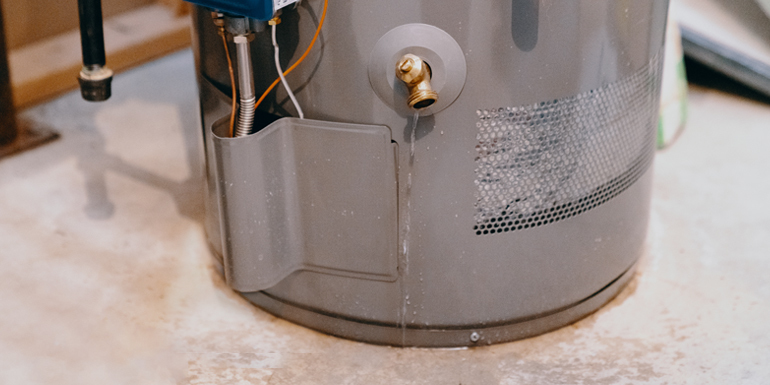Repairing a water heater leak is crucial for maintaining the efficiency and longevity of your water heater. Water heater leaks can lead to increased utility bills, water damage, and even complete system failure if not addressed promptly. In this guide, we will explore how to identify, diagnose, and repair water heater leaks, ensuring your home stays warm and your water heater runs smoothly.
Understanding Water Heater Leaks
Types of Water Heaters
Water heaters come in various types, including tankless, electric, and gas water heaters. Each type has its own set of potential issues and specific leak points. Understanding the type of water heater you have is the first step to diagnosing and fixing leaks effectively.
Common Leak Locations
Leaks can occur in several parts of the water heater, including the tank, valves, and pipes. Identifying the common leak locations such as the temperature and pressure relief valve, drain valve, and connections is essential for targeted repairs.
Signs of a Water Heater Leak
Detecting a water heater leak early can prevent significant damage. Common signs include puddles of water around the heater, rusty water, and a decrease in water pressure. If you notice any of these signs, it’s time to inspect your water heater closely.
Safety Precautions Before Repairing
Turning Off the Power
Safety is paramount when you repair a water heater leak. For electric heaters, turn off the power at the breaker box. For gas heaters, switch the gas valve to the “off” position to prevent any potential hazards.
Shutting Off the Water Supply
Next, shut off the water supply to prevent further leaking and water damage. Locate the cold water valve on top of the heater and turn it clockwise until it is fully closed.
Draining the Water Heater
Before starting repairs, drain the water heater. Attach a hose to the drain valve at the bottom of the tank and direct the water to a safe drainage area. Open the valve and let the water flow out completely.
Tools and Materials Needed
Basic Tools
Having the right tools is essential for any repair job. Basic tools include a pipe wrench, screwdriver, and adjustable pliers. These tools will help you tighten connections and replace faulty parts.
Replacement Parts
Depending on the leak, you might need replacement parts such as valves, washers, and gaskets. It’s a good idea to have these on hand before you start your repair to avoid multiple trips to the hardware store.
Safety Equipment
Safety equipment like gloves, safety goggles, and a bucket are necessary to protect yourself from hot water and potential debris during the repair process.
Diagnosing the Leak
Checking the Tank
Begin by inspecting the tank for any visible cracks or corrosion. Leaks from the tank itself often indicate internal damage and may require professional repair or replacement.
Inspecting the Pipes
Check the pipes connected to the water heater for any signs of leaks or corrosion. Tighten any loose connections and look for water stains, which can indicate slow leaks over time.
Examining the Valves
Valves are common leak points. Examine the temperature and pressure relief valve, as well as the drain valve. Look for any drips or moisture around these areas, which can indicate a need for replacement.
Fixing Leaks from the Top
Tightening Loose Connections
Leaks from the top of the water heater are often due to loose connections. Use a wrench to tighten any loose fittings, ensuring a snug and secure connection.
Replacing the Temperature and Pressure Relief Valve
If the temperature and pressure relief valve is leaking, it may need replacing. Turn off the power and water supply, drain the heater, and use a pipe wrench to remove the old valve. Install a new valve and ensure it is securely in place.
Repairing or Replacing the Anode Rod
The anode rod helps prevent corrosion inside the tank. If it’s corroded or damaged, it can cause leaks. Unscrew the old rod from the top of the tank and replace it with a new one to maintain the tank’s integrity.
Addressing Leaks from the Bottom
Inspecting the Drain Valve
The drain valve at the bottom of the tank is a common source of leaks. Check if the valve is properly closed. If it continues to leak, it may need replacement.
Replacing the Drain Valve
To replace the drain valve, drain the water heater completely. Use a wrench to remove the old valve and install a new one. Ensure the new valve is tightly secured to prevent future leaks.
Checking the Heating Elements
Electric water heaters have heating elements that can also be a source of leaks. Inspect the elements for any signs of wear or damage. If leaking, the heating elements may need to be tightened or replaced.
Repairing Leaks from the Sides
Examining the Cold and Hot Water Inlets
Leaks from the sides of the water heater often come from the cold and hot water inlets. Tighten the connections and replace any worn-out gaskets to stop the leaks.
Replacing Worn-Out Gaskets
Gaskets can wear out over time, leading to leaks. Inspect all gaskets around the water heater and replace any that show signs of wear or damage to ensure a tight seal.
Fixing Leaks from the Expansion Tank
If your water heater has an expansion tank, it can also be a source of leaks. Check the connections and the tank itself for any signs of leakage and make necessary repairs.
Dealing with Internal Tank Leaks
Identifying Internal Corrosion
Internal corrosion can cause significant leaks in the tank. Look for rust or water discoloration, which can indicate internal damage that needs to be addressed.
Using Epoxy or Sealant for Minor Leaks
For minor internal leaks, you can use epoxy or a sealant to patch the affected area. This is a temporary fix and should be followed up with a more permanent solution.
Considering Tank Replacement for Major Leaks
If the internal leaks are extensive, it might be more cost-effective to replace the entire tank. Consult with a professional to determine the best course of action.
Preventative Maintenance Tips
Regular Inspections
Regular inspections can help catch potential issues early. Schedule periodic checks to ensure your water heater is functioning properly and address any minor problems before they escalate.
Flushing the Tank Annually
Flushing the tank annually helps remove sediment buildup, which can cause leaks and reduce efficiency. Turn off the power and water supply, attach a hose to the drain valve, and flush the tank until the water runs clear.
Checking the Anode Rod Periodically
The anode rod should be checked every few years and replaced if it shows signs of significant wear. This helps prevent internal corrosion and extends the life of your water heater.
When to Call a Professional
Persistent Leaks
If you’ve tried to repair a water heater leak but it persists, it’s time to call a professional. Persistent leaks can indicate more serious underlying issues that require expert attention.
Complicated Repairs
Some repairs are too complex for a DIY approach. Complicated issues such as internal tank damage or extensive corrosion should be handled by a professional plumber to ensure safety and proper repair.
Warranty Considerations
If your water heater is still under warranty, attempting repairs yourself could void the warranty. Check the terms and conditions and consider calling a professional to handle repairs under warranty.
Cost of Water Heater Repairs
Average Repair Costs
The cost to repair a water heater leak varies depending on the type of repair needed. On average, minor repairs can cost between $100 and $300, while more extensive repairs can range from $500 to $1,000.
Factors Affecting Repair Costs
Several factors can affect the cost of repairs, including the age and type of water heater, the severity of the leak, and the cost of replacement parts. Labor rates can also vary depending on your location.
Comparing Repair vs. Replacement Costs
In some cases, replacing the water heater might be more cost-effective than repairing it, especially if the unit is old or has multiple issues. Compare the cost of repairs with the price of a new unit to make an informed decision.
FAQs About Water Heater Leaks
1. What causes a water heater to leak?
Water heater leaks can be caused by various factors, including corrosion, loose connections, faulty valves, and sediment buildup.
2. Can I use my water heater if it’s leaking?
Using a leaking water heater is not recommended, as it can cause further damage and pose safety risks. It’s best to address the leak promptly.
3. How long does a water heater last?
The average lifespan of a water heater is about 10-15 years. Regular maintenance can help extend its life.
4. How often should I flush my water heater?
Flushing your water heater annually can help prevent sediment buildup and maintain its efficiency.
5. What is an anode rod and why is it important?
An anode rod is a sacrificial rod that prevents corrosion inside the water heater tank. Regularly checking and replacing it can extend the life of your water heater.
6. What should I do if my water heater is leaking from the top?
If your water heater is leaking from the top, check for loose connections or faulty valves. Tighten connections or replace valves as needed.
7. Is it normal for a water heater to make noise?
Some noise is normal, but loud or unusual sounds can indicate sediment buildup or other issues that need to be addressed.
8. Can I repair a water heater leak myself?
Simple repairs like tightening connections or replacing valves can often be done by homeowners, but more complex issues should be handled by a professional.
9. How do I know if my water heater needs to be replaced?
If your water heater is over 10 years old, requires frequent repairs, or shows signs of significant corrosion or damage, it may be time to replace it.
10. How much does it cost to replace a water heater?
The cost to replace a water heater can range from $800 to $2,500, depending on the type and size of the unit, as well as labor costs.
Conclusion
Repairing a water heater leak is essential for maintaining the efficiency and longevity of your water heater. By following the steps outlined in this guide, you can diagnose and fix common leaks, ensuring your home remains comfortable and your water heater operates efficiently. Regular maintenance and timely repairs can prevent major issues and extend the life of your water heater. If you encounter persistent leaks or complicated repairs, don’t hesitate to call a professional to ensure the job is done safely and correctly.



